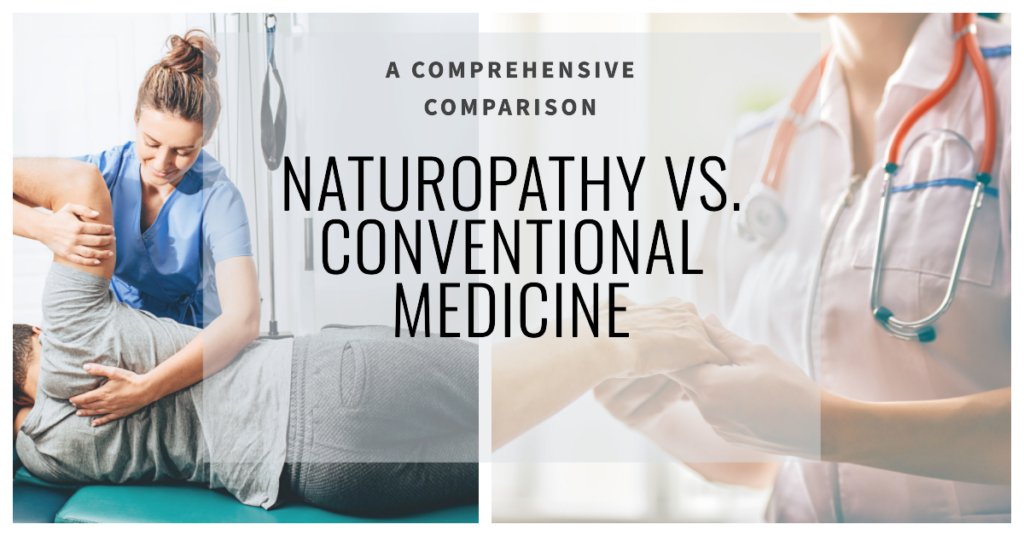Why Choose an Accredited Holistic Practitioner Online Course

Important Reasons for Choosing an Accredited Online Holistic Practitioner Course
Holistic health and wellness is a growing field that offers a wide range of alternative therapies and practices to promote physical, mental, and spiritual wellbeing. From animal communication to art therapy, to acupuncture, holistic medicine has a variety of approaches to help individuals achieve optimal health. If you are considering a career in holistic health, it is essential to understand the importance of choosing an accredited online holistic practitioner program. It’s also important to understand why accreditation is necessary and how it can benefit you. In this article, that’s exactly what we’ll discuss. Please read until the end to be sure you make the right choice.
What is Accreditation?
Accreditation is a process of evaluating educational programs and institutions to ensure they meet certain standards and provide quality education. In the field of holistic health, accreditation is essential for online courses and programs aimed at training students to become holistic practitioners. It helps to ensure that students receive a comprehensive education in holistic health and wellness, and that they have the necessary skills and knowledge to become successful practitioners.
Holistic health is a growing field, encompassing alternative medicine, nutrition, and various therapies. As more people seek out holistic treatments for their health and wellness, the demand for trained and knowledgeable practitioners has increased.
Accreditation helps to ensure that students who enroll in online holistic practitioner programs receive a high-quality education, and that they are well prepared to enter this growing field as certified holistic health practitioners. This way, they’ll be ready to revolutionize the lives of their clients!
Why is Accreditation Important for Online Holistic Practitioner Programs?
Accreditation comes with guarantees. Indeed, when they take an accredited course, students are guaranteed to receive a comprehensive education in holistic health and wellness. Accredited programs are reviewed and evaluated by recognized organizations in the field of holistic health to ensure that the knowledge and skills taught are recognized and valid.
When choosing an online holistic practitioner program, it is essential to look for accreditation from a reputable organization in the field of holistic health. To use a metaphor, accreditation serves as a quality seal of approval and provides students with the assurance that they are enrolling in a program that meets high standards of education.
Be careful, because accreditation also impacts the career prospects of holistic practitioners. Graduates from accredited online holistic practitioner programs are more likely to be recognized and respected by clients, employers, and other practitioners in the field. That’s why you need to choose an accredited holistic course to become an efficient animal communicator, or a highly skilled art therapy practitioner.
Accreditation helps to establish credibility and enhances the professional reputation of holistic practitioners. By choosing an accredited online holistic practitioner program, you’re making an investment in your future. Not only will you receive a high-quality education, but you’ll also be able to command higher fees as a practitioner.
Accreditation shows that you have met rigorous standards and have the knowledge and skills to provide top-notch care to your clients. This recognition can help you stand out from other practitioners, and can lead to increased income and financial stability. So, if you’re looking to grow your career and make a positive impact on others, an accredited online holistic practitioner program is the way to go! If you’re looking to attract more clients, make sure to check this article.
What Guarantees Does Accreditation Give Students?
Accreditation gives students several guarantees when it comes to their education and future career prospects in the field of holistic health.
Accreditation first guarantees that students receive a comprehensive education in holistic health and wellness. Accredited online holistic practitioner programs are evaluated and reviewed by recognized organizations in the field of holistic health to ensure that they provide students with a well-rounded education in alternative medicine, nutrition, and various therapies like animal communication or naturopathy.
Accreditation is especially important in the field of holistic health, where there are many programs and courses available, and not all of them may meet the standards necessary to provide students with the education they need to become successful practitioners. Some courses might even be controversial, that’s why you can’t leave your education up to chance.
What Happens if You Don’t Choose an Accredited Online Holistic Practitioner Program?
There are several consequences that students may face if they choose to enroll in a non-accredited online holistic practitioner program:
- Students may not receive a comprehensive education in holistic health and wellness.
- Non-accredited programs may not have been evaluated or reviewed by recognized organizations in the field, meaning that they may not meet the high standards of quality required.
- Students may not be prepared to enter the job market as a holistic health practitioner.
- Graduates from non-accredited programs may not be recognized or respected by clients, employers, or other practitioners in the field, and may have a harder time finding employment.
- Non-accreditation can suggest that the program or course is of lower quality, which can have negative implications for the student’s future career prospects.
- Finally and most importantly, students who enroll in non-accredited programs may not be able to earn a certificate or certification in holistic health.
Accreditation is often required for students to be eligible for certification in their field, meaning that graduates from non-accredited programs may not be able to earn the certification they need to practice as a holistic health practitioner. By choosing an accredited online holistic practitioner program, students are making an investment in their future and ensuring that they are well-prepared to enter this growing field with the necessary knowledge, skills, and certifications.
The Difference Between Non-Accredited Courses and Accredited Trainings
Now you’ve understood that choosing an accredited online holistic practitioner program is a critical decision that you must make if you want to have a successful and fulfilling career in the holistic health field. There are several key differences between non-accredited courses and accredited trainings that students should be aware of before making their choice.
Quality of Education
Accreditation is a rigorous process that involves a comprehensive evaluation of course materials, faculty, and resources, and is only awarded to programs that meet the highest standards of quality in the holistic health field. On the other hand, non-accredited courses may not be reviewed or evaluated, and therefore may not provide students with the same level of comprehensive education and training.
Respect & Recognition
Students who graduate from accredited programs are more likely to be recognized and respected in the job market. Accreditation is often a requirement for certification in the field of holistic health, and is seen as a sign of quality and competency by employers and clients. Graduates from accredited programs are therefore more likely to be hired and to be successful in their careers. Health centers, associates and fellow colleagues will be more likely to work with you if the course you have taken received accreditation. The opportunities you can get can be fantastic!
Up-to-date Courses
Accredited courses will provide students with the latest developments and trends in the holistic health field. Accreditation is an ongoing process that requires programs to regularly evaluate and update their course materials, faculty, and resources. This means that students who enroll in accredited programs are more likely to be exposed to the latest advances in the different fields and will be better prepared to enter the job market as competent and well-informed practitioners.
It makes no doubt that students who are considering an online holistic practitioner program should prioritize accredited trainings over non-accredited courses. Accreditation provides students with the best opportunities to receive a comprehensive education, to be recognized and respected in the job market, and to be well-prepared for a successful and fulfilling career in the holistic health field.
Scholistico Courses are Internationally Accredited by the IPHM and CMA
At Scholistico, we take pride in offering our students the highest quality of holistic education and training available. That’s why our online holistic practitioner programs are internationally accredited by two of the most respected institutions in the field, the International Practitioners of Holistic Medicine (IPHM) and the Complementary Medicine Association (CMA).
These organizations are dedicated to advancing the standards of holistic education and practice, and their accreditation ensures that our courses meet the highest standards of quality, professionalism, and safety.
The IPHM is a globally recognized institution that sets the standards for holistic medicine and therapy education. They are committed to promoting holistic health and wellness, and their accreditation is a rigorous process that involves a comprehensive evaluation of course content, delivery methods, and student outcomes. With IPHM accreditation, students can trust that they are learning from a high-quality and well-respected program that is committed to advancing their knowledge and skills in holistic health.
The CMA, on the other hand, is dedicated to promoting complementary and alternative medicine practices, and they work to advance the standards of education and training for holistic health practitioners. They offer a range of accreditation programs that cover various modalities, including nutrition, herbal medicine, and holistic therapies.
Their accreditation provides students with the assurance that they are learning from a program that meets the highest standards of professionalism and quality.
By choosing an online holistic practitioner program that is accredited by the IPHM and CMA, students can be confident that they are investing in their education and career in a way that will provide them with the skills, knowledge, and credibility they need to succeed in the holistic health field. Whether you are just starting your journey or are already a practicing holistic health practitioner, our courses are designed to help you reach your full potential and achieve your goals in the best possible way! Check out our Animal Communication Course or our training on How to Become an Art Therapy Practitioner.
The importance of accreditation in online holistic practitioner programs cannot be overstated. Accreditation ensures that the courses you take are the best and that they are recognized by the industry. It gives you peace of mind that you will receive quality education and training, and it opens up a world of opportunities for your career. At Scholistico, we are proud to offer internationally accredited courses and our course modules are designed to provide students with the knowledge and skills they need to succeed in their careers as holistic practitioners. The investment you make in your education will pay off in the long run, and you’ll be on your way to a successful career as a certified holistic practitioner.












Responses